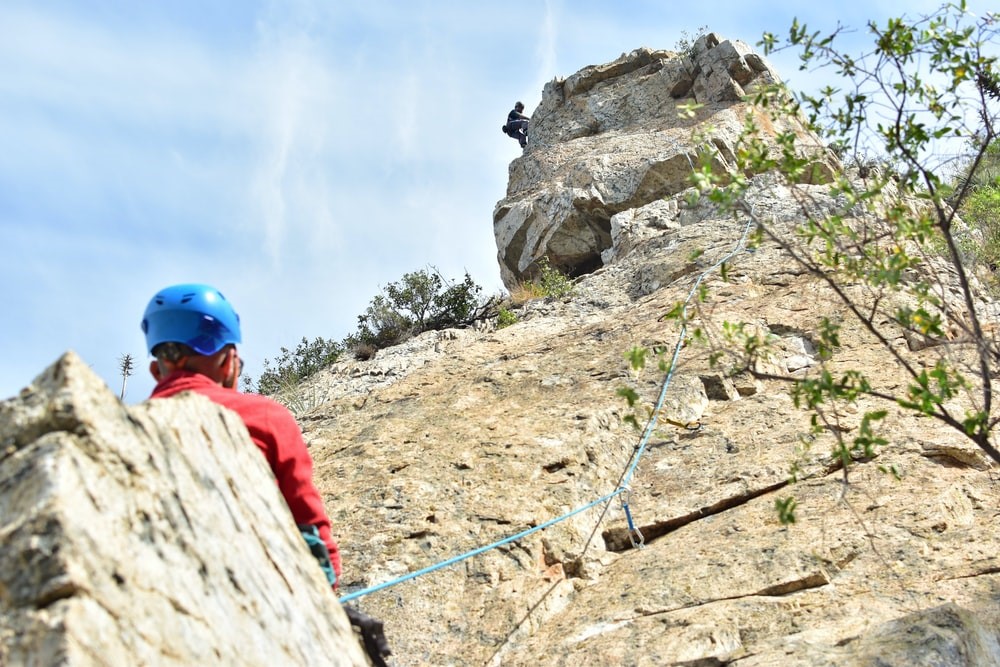My friend Trey asks great questions.
Shortly after starting my blog, he asked, “So why did you call it lead you first?”
That inquiry inspired this post.
What does it mean to lead yourself?
Years ago, I came across the following quotes from thought leaders I deeply respect.
“All leadership begins with self-leadership.” –John Maxwell
“Self-leadership always comes before team leadership.” –Daniel Harkavy
“The most difficult person you will ever lead is yourself.” –Bill George
Here is my interpretation—authentic and lasting leadership begins with personal leadership, and constantly leaning into the difficult character lessons of life—and should precede leading others.
Many people think only of leadership in the workplace. But this view of leadership is extremely limited.
In it’s most pure essence, life is about love and learning. And every life circumstance brings opportunities to learn and increase our ability to love others better—and to lead better lives.
Every leadership challenge reveals an essential invitation for how we need to change and grow.
Within each difficult situation are clues for what needs to change inside of us during our life journey—if we have eyes to see it.
Therefore, whether at work or home, life is rich with opportunities for practicing personal leadership in every moment.
After all, we don’t suddenly become a different person when we finish our work day and enter our personal lives.
Our habits, our beliefs, our thoughts, and our behaviors go with us. As Jon Kabat-Zinn put it in his famous book title—Wherever you go, there you are.
If I struggle with delegation as a leader, it may reveal a deep need for control or lack of trust in others.
If I have difficulty saying “No” at my job, the chances are good that this habit shows up in my personal life.
If I am chronically busy and overloaded, I may desperately want to be admired, respected, or appreciated at work or at home.
If I don’t make time to recognize my coworkers, beneath that habit may be a desire for my ego to feel most important.
If I have difficulty listening at work, I won’t become a better listener in my personal relationships, and vice versa.
If I have trouble saying what I really mean in a meeting, that same tendency will likely be apparent in addressing something directly with a friend.
All of these things reveal growth opportunities for personal leadership that can improve how we operate in every area of our lives.
The greatest players in sports practice on—and off—the field.
They know that building great habits takes consistency and lifelong dedication.
Leadership at home
Leadership expert John Maxwell has said that he has always defined success by whether the people closest to him love and respect him the most.
Ever since I read that, I have found it inspiring—and terrifying.
Do the people that know me best, love and respect me the most?
I don’t know about you, but at home there are ample daily opportunities for me to be less selfish, more forgiving, more generous, and more patient. The invitations are infinite.
Leading well at home is the definitely one of the hardest things I’ve ever done, and the most important. After all, the consequences of mistakes at work are usually less costly than those at home.
In addition, most of the wounds we carry around for life can be traced to our childhood or dynamics with our caregivers. This isn’t their fault because they were carrying wounds from their parents too. Often these wounds are unconscious, yet strongly influence our behavior in future relationships.
Families fall apart when leadership at home isn’t strong.
And when families fall apart, our anchor becomes loosed from its mooring, the fabric of our lives can more easily unravel. The inner child in all of us, no matter what age, often becomes more angry, afraid, or self-destructive.
What cause could be more worth fighting for than leaning into the hard personal lessons of family, marriage, or parenting?
A broken formula
Our world largely defines success by what we have, what we do, then who we are—in that order. But this formula is broken because who we are is infinitely more important than anything we will ever have. And who we are also determines whether we do anything truly meaningful.
The focus needs to begin with who we are.
I recently came across this 2000-year-old quote by Marcus Aurelius which I have found enormously helpful and personally challenging:
“Accept whatever comes to you woven into the pattern of your destiny, for what could more aptly fit your needs.”
When I read this, I began to view every situation that came into my life as divinely and uniquely constructed for my personal growth and character needs, in order to become the person I need to be.
The choice to view things this way is beginning to transform the way I respond.
I hope others will find hope in this as well.
Life stressors only reveal what we have been able to successfully hide up until that point. Challenges in life are not inconveniences or barriers to be raced through or detoured around, they are the necessary vessels of our transformation.
Ultimately, personal leadership is not about better business results or work success. It is an existential and spiritual journey of far greater significance.
Turn information into action
A question for your reflection—What situations in your life or work right now are inviting you to change?
Have a great weekend!
Parker
*If you have enjoyed Parker’s blog, check out The Next Peak Podcast that Parker co-hosts. We interview successful leaders and discuss research-based principles that help people win in the workplace without compromising the things that matter most—relationships, a life of purpose, and personal health.
Want more? Suggested Resources Below…
- The Leadership Secrets of Billy Graham
- Developing the Leader Withing You by John Maxwell
- Living Forward by Daniel Harkavy and Michael Hyatt
- Wherever you go, there you are by Jon Kabat-Zinn




